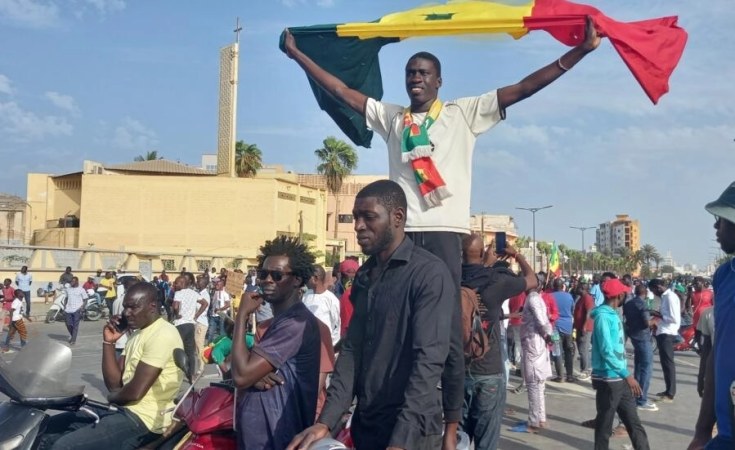The election was due to be held in less than three weeks. But a row over the disqualification of several candidates sparked a major political crisis in one of West Africa's most stable democracies.
Senegalese President Macky Sall on Saturday announced an indefinite delay to the February 25 presidential election, the first time the West African country has postponed a national vote.
In a televised address, Sall told the nation he had signed a decree abolishing a previous measure that set the date.
The decision follows a dispute between the National Assembly and the Constitutional Court over the rejection of some candidates.
The delay came just hours before official campaigning was due to start, with little more than three weeks until the vote.
The decision pushes Senegal into uncharted constitutional waters that some opposition and civil society groups warn could destabilize the country.
But there was no immediate sign of people taking to the streets of the capital, Dakar, to protest the decision.
The US State Department said it was "deeply concerned" about the delay.
"We urge all participants in Senegal's electoral process to engage peacefully in the important effort to swiftly set a new date and the conditions for a timely, free and fair election," a statement from the department's Bureau of African Affairs said.
Why were candidates prevented from running?
Last month, the Constitutional Court excluded several candidates from the vote, including firebrand anti-system figurehead Ousmane Sonko, who has been jailed since July 2023.
Sonko finished third in the 2019 presidential election and is seen as a favorite among young people.
But his party was formally dissolved and he was rejected from standing in the election after being jailed last year for "corrupting youth."
He has alleged a clampdown on the opposition, which Sall's government denies.
Another candidate excluded was Karim Wade from the Senegalese Democratic Party (PDS) -- the son of former President Abdoulaye Wade.
Wade was barred because he allegedly also holds French citizenship, a decision he denounced as "scandalous" as he renounced it last year.
Senegal's constitution prevents those with dual nationality from running for election.
Rose Wardini, one of only two women on the approved list of candidates, was detained Friday on charges of allegedly hiding her French citizenship, according to judicial sources.
What happens now?
Wade's supporters in the National Assembly called for a parliamentary inquiry into the partiality of two judges on the Constitutional Court.
The motion was passed by the Assembly on January 31, with some members of Sall's party supporting it. It is unclear how long the inquiry will take to deliver its report.
Sall on Saturday did not set a new date for the vote but said there would be a national dialogue to ensure the election would be free, fair and transparent.
He added the controversies over the candidates "could seriously harm the credibility of the election by creating the seeds of pre- and post-electoral litigation."
Sall, who has served two terms as president, had repeatedly promised to hand over power in early April to the winner of the vote.
He designated Prime Minister Amadou Ba from his party as his would-be successor.
Critics of the postponement included former Prime Minister Aminata Toure, who called it "sabotage."
The coalition of opposition candidate Khalifa Sall, the former mayor of Dakar, warned that delaying the vote would undermine the legitimacy of the election and amount to an "institutional coup d'etat."
The influential League of Imams and Preachers of Senegal also warned that postponing the vote would be "fraught with risks."
Senegal is one of Africa's most stable democracies at a time when the region is grappling with a wave of coups.
mm/nm (AFP, AP, Reuters)


